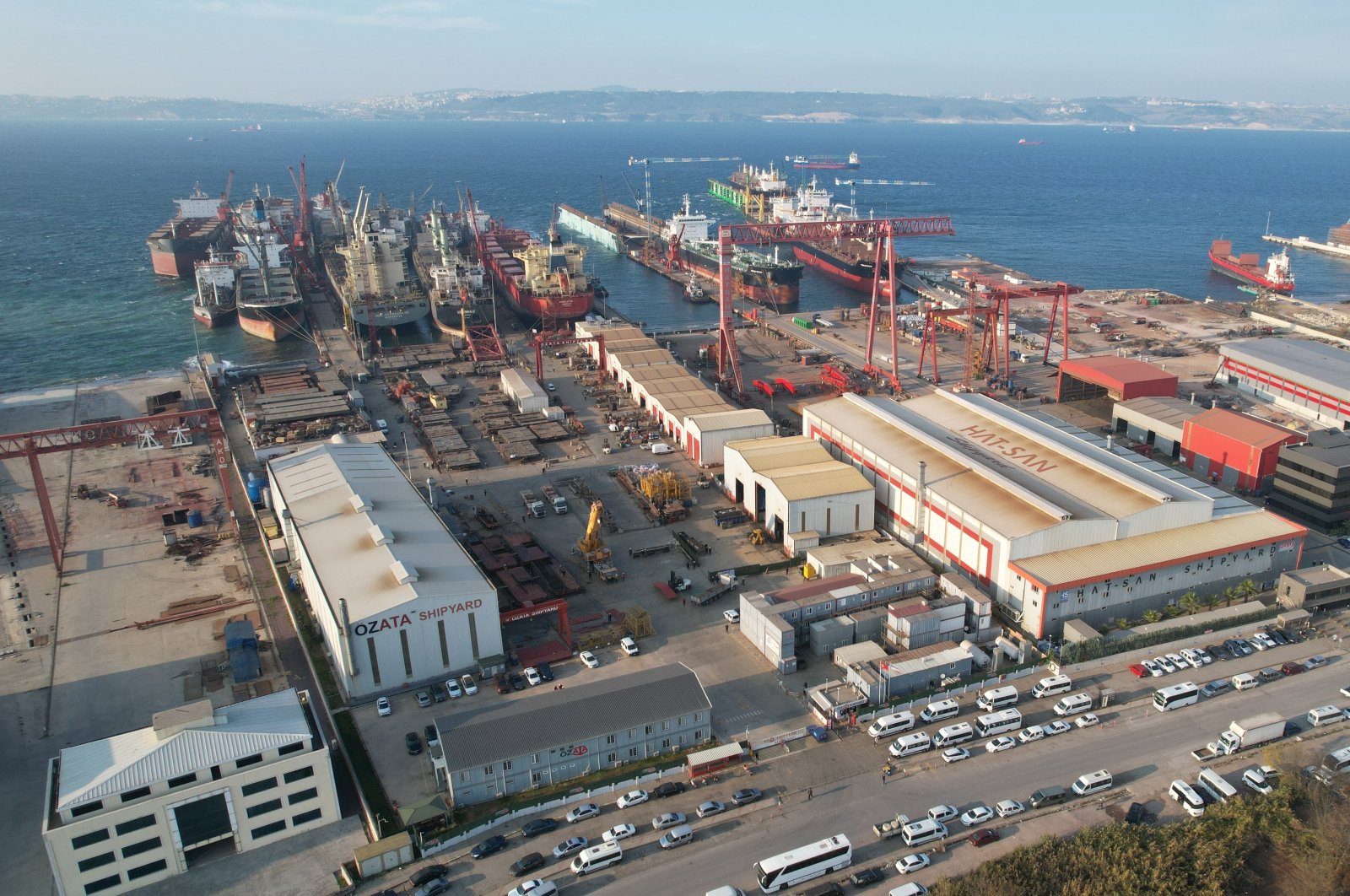
Türkiye’s current account swung back to a deficit in July after a rare surplus a month earlier, official data showed on Monday, propelled mainly by the chronic trade imbalance.
The balance registered a nearly $5.5 billion shortfall, the Central Bank of the Republic of Türkiye (CBRT) said, versus a revised surplus of $651 million in June.
The figure came in higher than market expectations. Estimates in Reuters and Bloomberg surveys were for a deficit of $4.5 billion. The balance registered a $3.5 billion deficit in July last year.
The gap for the January-July period reached $42.3 billion, the central bank data showed, nearly matching the government’s year-end forecast of $42.5 billion that was outlined in the new medium-term program, unveiled last week.
The government has been seeking ways to curb the stubborn trade imbalance by lowering dependence on imports.
The forecasts in the new economic roadmap see the current account deficit falling to around $34.7 billion, or 3.1% of GDP, in 2024, down from about 4% projected for this year.
Treasury and Finance Minister Mehmet Şimşek has said the shortfall is expected to shrink to around $40 billion in December due to a slowdown in consumer loan growth and a sharp rise in tourism revenues.
Data revealed that the 12-month rolling gap surged to $58.5 billion, equivalent to approximately 6% of the gross domestic product (GDP), according to economists' calculations.
Fitch Ratings, which raised Türkiye’s credit outlook to stable from negative on Friday, said the current account deficit "will remain high” this year and reach 4.7% of GDP.
The Reuters survey suggests the shortfall is likely to finish the year at around $45 billion.
The gold and energy-excluded current account saw a surplus of $717 million in July, the central data showed. The gold deficit stood at $10.47 billion.
Services saw a net surplus of nearly $6 billion, mainly driven by robust tourism income. Net revenues stemming from the travel sector reached $4.8 billion.
Net errors and omissions – money of unknown origin – registered inflows of about $4.4 billion, according to the data. Combined with the $8.15 billion in June, there has been a total inflow of $12.5 billion following President Recep Tayyip Erdoğan’s reelection in the May elections.
In July, direct investments saw a net inflow of $392 million, while portfolio investments recorded a net entry of $1.16 billion. Reserves rose by almost $2.8 billion.
"The slowdown in global leading activity indicators observed in the second half of 2023 may result in a slowdown in exports,” said Haluk Bürümcekçi of Bürümcekçi Consulting.
"However, the acceleration in exchange rate increases after the elections, tightening monetary and fiscal policies, and measures aimed at slowing down the pace of individual loans could slow down domestic demand and curb import growth,” Bürümcekçi told Reuters.
He also said that he believes the risks to year-end trade deficit expectations are balanced.
In 2022, the deficit expanded significantly and reached $48.8 billion, compared to $7.2 billion in 2021, fueled by elevated imports driven by high energy prices following the Russian invasion of Ukraine and soaring gold purchases.
Reducing the deficit and achieving a surplus were among Erdoğan's primary economic goals in recent years. However, the sharp rise in oil, natural gas, and grain prices following the war in Ukraine further exacerbated the trade imbalance.
The economic management maintains its goal of achieving a surplus but has acknowledged that it will take time. The government forecasts a deficit of $30 billion by the end of the medium-term program in 2026.
Erdoğan's government has orchestrated a U-turn away from policies based on interest rate cuts that had been accompanied by a steep fall in the Turkish lira and soaring inflation.
Since June, the central bank has roughly tripled its benchmark policy rate to 25% and pledged that monetary tightening would be delivered, if needed.
